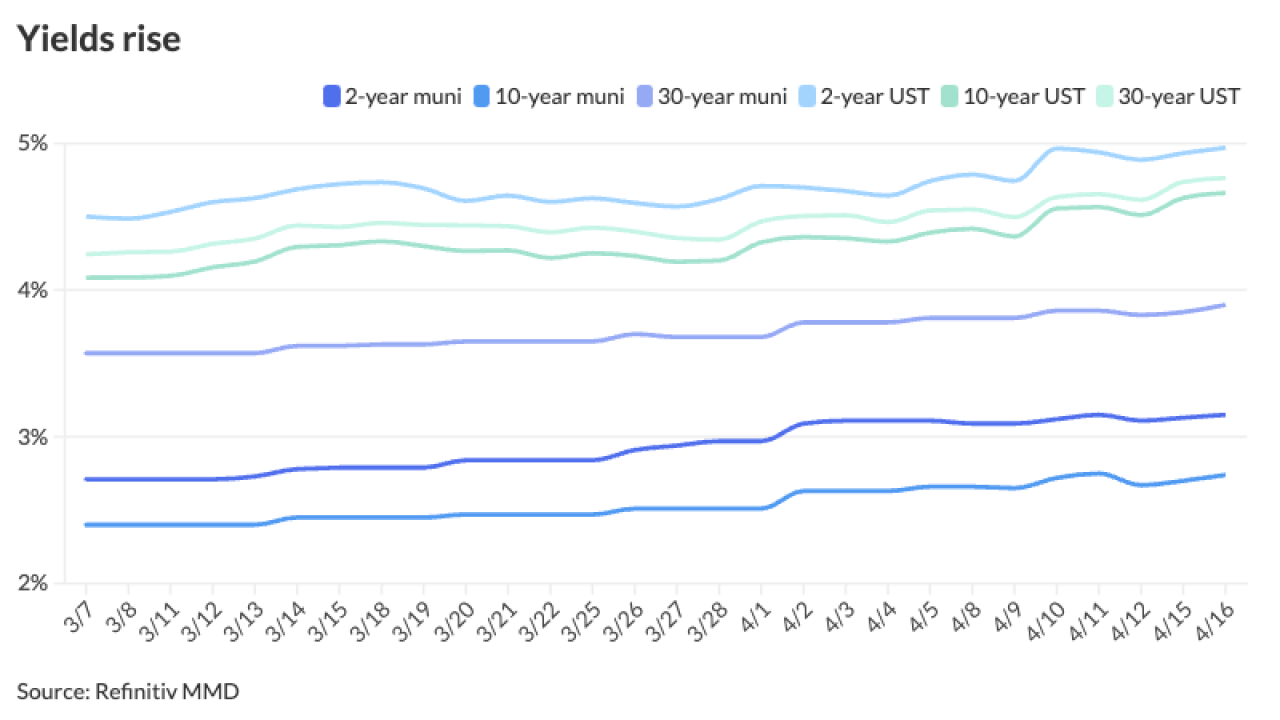CHICAGO — The fiscal strain of deteriorating pension funding levels on local and state governments could contribute to downgrades in the next several years, especially among those governments that entered the recession with poor funding ratios or have little flexibility in their funding requirements, a new report from Moody’s Investors Service warns.
In the near term, the impact of dwindling investment returns as a result of the market downturn is broad and adds yet another layer of fiscal stress on governments already faced with faltering tax revenues, heightened demand for social services, and pressure to scale back pension contributions to balance their budgets.
Though returns in the equity markets where pension funds are heavily invested have improved, the losses continue to weigh on asset valuations and near-term contribution requirements at a time when demographic pressures pose long-term strains.
“There’s the near-term impact of investment losses and the long-term pressures of the demographics of an aging population, so the pressures will continue to build. That’s what we are worried about,” said Douglas Benton, a Moody’s vice president and senior credit officer who was the lead author on the special report released yesterday that deals with the pressure put local and statement governments ratings by pension funding issues.
Moody’s said its focus now is on collecting updated funding information and assessing its near-term impact on government budgeting.
“As municipalities encounter under-funded plans, an important determinant for our analysis will be the magnitude of cash required to meet increased funding obligations relative to retained liquid resources, along with the willingness and ability to access external resources to address this issue,” the report read.
Analysts will specifically look for the pension-related impact on tax revenue, pension funding levels, and employee benefits — factors that analysts dubbed “red flags,” Benton said. Municipalities that have a pension plan with a funding level that is significantly lower than its peers will be considered to be “exhibiting fiscal stress.”
Analysts will look closely at a government’s historical funding actions and its near-term commitment to meeting funding requirements. Analysts would view as negative one-time maneuvers to trim scheduled payments or to alter a plan’s status or payment schedule through changes in actuarial firms or changes in the terms used to smooth out of investment returns or amortization periods.
“Those are indications that a municipality is not addressing its economic reality,” Benton said.
Moody’s said it would continue to generally view the use of pension obligation bonding as credit-neutral from a rating perspective as it represents a change in the form of an obligation from a softer liability with some flexibility in its payment to a hard one.
“This type of transaction can be beneficial for a municipality if pension returns exceed the cost of carrying the debt. However, the issuance of pension obligation bonds also introduces the risk that investment returns could fall below debt costs, which would exacerbate fiscal stress for the municipality,” the report reads.
The stress is likely to be felt most acutely by governments that, due to past management decisions, entered the latest economic cycle with poorly funded plans and have already been hit by downgrades.
On the state level, Illinois and New Jersey’s massive unfunded pension obligations and their failures to fully make required annual contributions have contributed to negative credit action. At the local level, poor pension funding decisions contributed to Indianapolis, Evanston, Ill., and Omaha’s loss of their top-level ratings.
Others have succeeded in addressing their pension funding issues head on by taking a fiscally conservative approach to fulfilling funding requirements, including Virginia, San Francisco, and a group of Connecticut cities, and their actions help enhance their credit profiles.
Moody’s said it would in the coming months conduct a review of the largest cities and states’ pension liabilities and refine its approach to incorporating the information in its rating process.
Analysts will also include an analysis of other post-employment benefits liabilities that are now being published in financial statements.
The level of legal and statutory flexibility in pension funding varies by state.
Nine states have constitutional provisions guaranteeing pension rights. 20 states have explicit statutory guarantees, 18 have court-developed common law rights, and three approach the issues in other ways.





